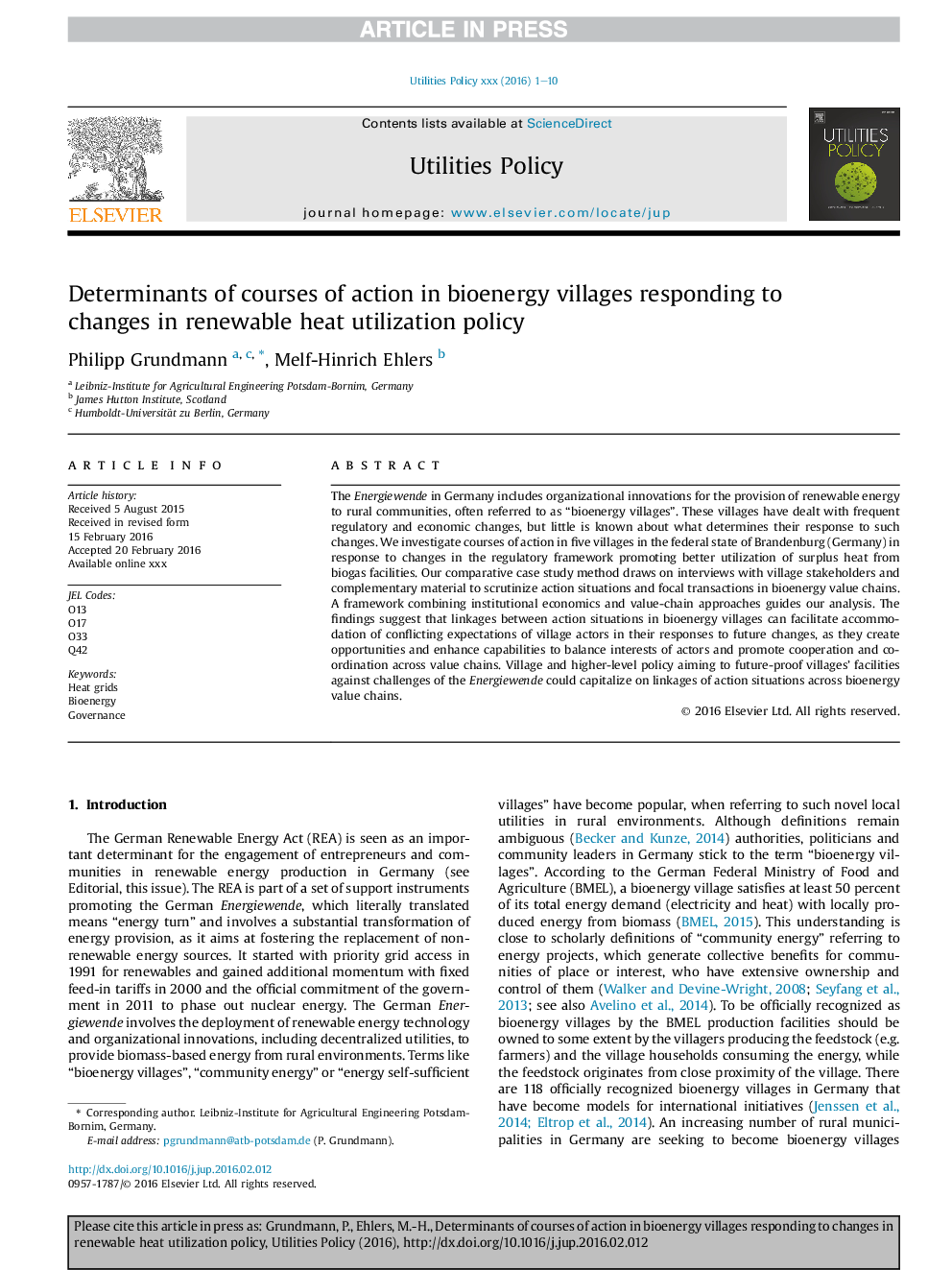| Article ID | Journal | Published Year | Pages | File Type |
|---|---|---|---|---|
| 5106847 | Utilities Policy | 2016 | 10 Pages |
Abstract
The Energiewende in Germany includes organizational innovations for the provision of renewable energy to rural communities, often referred to as “bioenergy villages”. These villages have dealt with frequent regulatory and economic changes, but little is known about what determines their response to such changes. We investigate courses of action in five villages in the federal state of Brandenburg (Germany) in response to changes in the regulatory framework promoting better utilization of surplus heat from biogas facilities. Our comparative case study method draws on interviews with village stakeholders and complementary material to scrutinize action situations and focal transactions in bioenergy value chains. A framework combining institutional economics and value-chain approaches guides our analysis. The findings suggest that linkages between action situations in bioenergy villages can facilitate accommodation of conflicting expectations of village actors in their responses to future changes, as they create opportunities and enhance capabilities to balance interests of actors and promote cooperation and coordination across value chains. Village and higher-level policy aiming to future-proof villages' facilities against challenges of the Energiewende could capitalize on linkages of action situations across bioenergy value chains.
Related Topics
Physical Sciences and Engineering
Energy
Energy (General)
Authors
Philipp Grundmann, Melf-Hinrich Ehlers,
